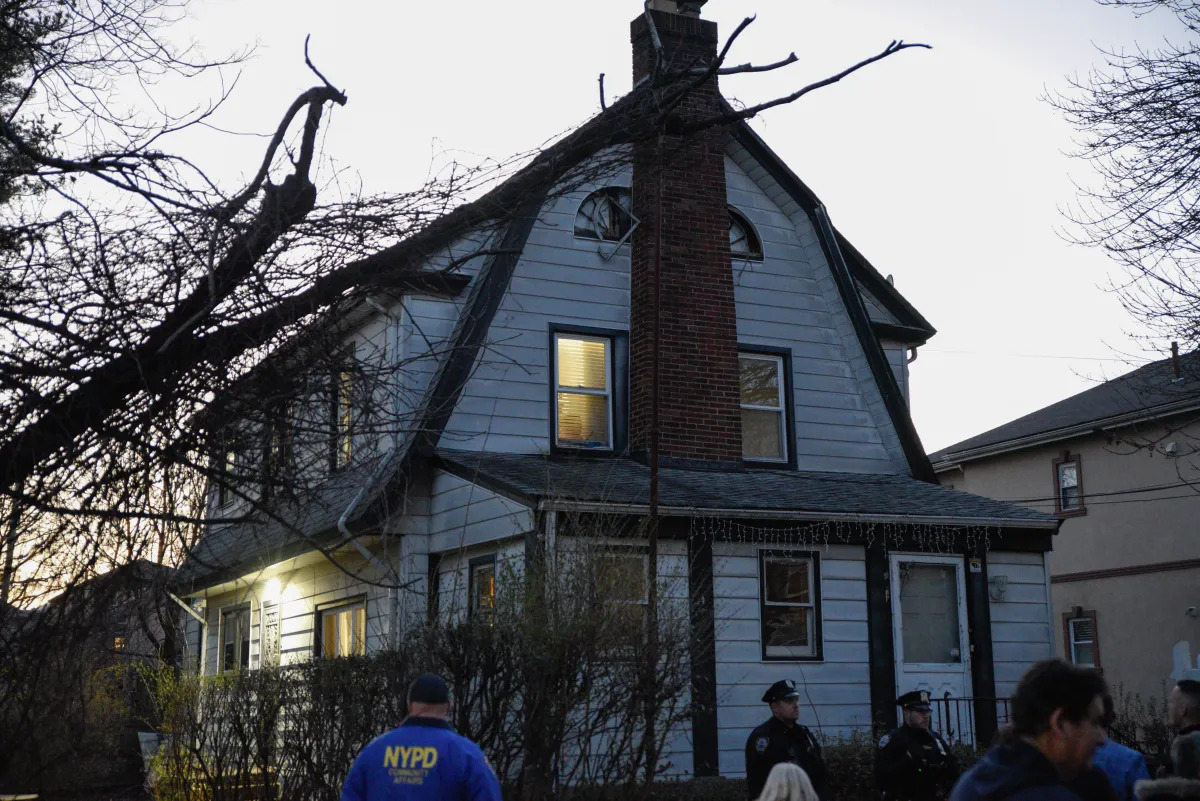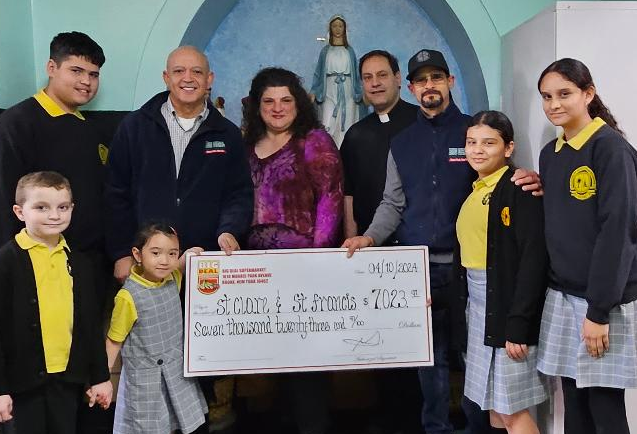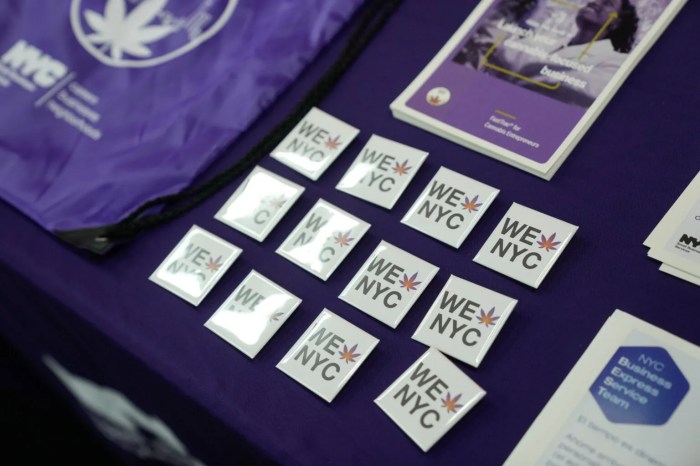BY ALINE REYNOLDS | In a sweeping announcement made on Fri., June 8, the federal government proposed adding 50 forms of cancer to the list of treatable illnesses covered by the James L. Zadroga 9/11 Health & Compensation Act.
Cancer of the colon, liver and thyroid as well as certain respiratory and blood forms of the disease, are among the host of cancers that are up for inclusion, according to a document the Zadroga Act’s administrator Dr. John Howard has released. Howard’s decision was largely influenced by the recommendations made by the Scientific/Technical Advisory Committee (S.T.A.C.), a group of health experts and Downtown advocates that advised treatment of some 50 cancer types to be federally funded.
The proposal, if enacted, would provide nationally subsidized coverage to cancer-stricken Downtown residents, workers and students, in addition to first responders from outside the area who inhaled Ground Zero toxins during the clean-up effort.
Prior to this latest announcement, Howard had vetoed adding cancer to the Zadroga Act, citing insufficient medical evidence to do so in an initial review published last July.
Howard justified his determination in a June 8 letter addressed to U.S. Congressman Jerrold Nadler. “We recognize the serious impact cancer has had on responders, survivors and their loved ones,” he wrote. “I accepted the S.T.A.C.’s approaches in determining that certain types of cancer should be added to the list.”
But the proposal comes with one particularly worrisome drawback: the inclusion of cancer could potentially lead to less care and compensation benefits for each individual patient and applicant.
“That theoretically could be an issue,” said Dr. Jacqueline Moline, head of the Queens W.T.C. Clinical Center of Excellence and former director of the Mount Sinai Medical Center’s W.T.C. Medical Monitoring and Treatment Program. “Hopefully, we won’t have too many people developing cancers.”
This possibility has 9/11 victims such as first responder Keith LeBow fretting about their futures.
LeBow, 49, suffers from gastroesophageal reflux disease (G.E.R.D.), asthma and several other illnesses he attributes to his time at Ground Zero, where he worked for the first 100 hours following the Sept. 11 attacks. The former iron worker’s ailments forced him into early retirement in 2008.
“I’m very worried,” he said of the potential limitations of his medical treatment. “Even though this is a victory, it still came at a price.”
The logistical problem of restricted funds has existed since the bill’s passage in late 2010, LeBow noted.
“It’s just now about figuring out [how] it’ll not only satisfy everybody’s needs but make sure everybody is well taken care of,” he said.
Lainie Kitt, who works at the New York City Housing Authority at 90 Church St., relied on her private health insurance to receive treatment for breast cancer, which she was diagnosed with in 2005.
At the time, Kitt’s doctors were unsure as to whether or not the illness was tied to her months-long exposure to the W.T.C. dust and debris that accumulated in her office.
“At this point, I question it a lot,” she said, “now that they’re finally identifying that cancers are related to being down there.”
Kitt, who has received care at the NYU Cancer Institute over the years, said that, moving forward, she would consider consulting one of the W.T.C. Centers of Excellence for the mammograms that she gets twice a year.
“I’d absolutely get myself checked out by them,” she said, “because I think it’s imperative, given that I was down here and I did have a diagnosis of cancer.”
Amit Friedlander, a 2002 graduate of Stuyvesant High School who was diagnosed with Hodgkin’s lymphoma in 2006, said that, while he was pleased to hear about N.I.O.S.H.’s cancer proposal, the onset of the disease for some people could occur years after the Zadroga Act sunsets, in 2016.
Friedlander, whose cancer is now in remission, used his private health insurance for chemotherapy and other necessary treatment.
“It’s not the most comprehensive solution, given that the fund shuts down in a few years,” he said of the cancer proposal, “but it sounds good compared to what was there before, which is basically nothing.”
Moline affirmed that cancers such as lung cancer and mesothelioma have latency periods of at least 15 years. In some cases, she said, certain forms of the disease could take far longer to develop inside the body.
“I’ve seen patients after 70 years of their exposure develop mesothelioma,” said Moline. “I think people are at a quandary again — we’ve got coverage now, but we don’t expect most of these people to develop cancers now.”
Other cancers such as colon cancer, however, are preventable altogether with the appropriate screening, the physician noted.
Moline said she’s prepared to walk the halls of Congress again in a few years in order to lobby for the bill’s extension, so that 9/11 victims can continue to receive federally subsidized care.
“We’re going to do what we did many times before,” she said, “which is to make them realize that our responsibility does not end at the end of the five-year period of the Zadroga Act. These folks are too important to us as a nation, and it should be our responsibility to care for them.”
Once cancer is officially added to the list of illnesses covered by the Zadroga Act, Friedlander and all other cancer-stricken 9/11 survivors may apply for compensation through the Victim Compensation Fund (V.C.F.), according to V.C.F. Special Master Sheila Birnbaum.
“We’ve always said that if N.I.O.S.H. adds new illnesses to their list of World Trade Center illnesses, we’d add them for compensation,” she explained.
Once N.I.O.S.H. issues the cancer regulation and sets the criteria, “If they make all the other eligibility requirements, they’ll be able to apply,” she added.
But Birnbaum acknowledged that allowing those with cancer to apply for V.C.F. money will automatically limit the sums ultimately granted to each claimant — especially since, due to the disease’s severity, the cancer cases would likely demand more compensation, she noted.
“There’s no question that the amounts people receive would be reduced,” said Birnbaum. “Nobody at this point can tell you [by] how much — it’ll all depend on the numbers of people that apply and the kinds of awards they’ll get.”
Nadler along with U.S. Representatives Carolyn Maloney and Peter King, the bill’s sponsors in the House of Representatives, said they were “thrilled” by the cancer proposal.
“It further strengthens our legislation…and helps pave the way for expanding the scope of available medical care and compensation for those sickened by the toxins at Ground Zero,” the electeds said in a statement. “As we have all seen with our own eyes again and again, cancer incidence among responders and survivors is a tragic fact, and we must continue to do everything we can to provide the help that those who are sick need and deserve.”
Howard, however, cautioned that his announcement is “a proposal only” and is subject to a 30-day comment period that began on Wed., June 13. “Once public comments are received,” he wrote, “I will address them as appropriate before issuing a final ruling.” It wasn’t immediate clear what the time frame is for Howard’s final determination.
Visit www.cdc.gov/niosh/topics/wtc/stac/cancer.html to view the N.I.O.S.H. cancer proposal. Comments on the proposal are due by Fri., July 13. To submit comment, mail to N.I.O.S.H.’s Docket Office (Robert A. Taft Laboratories, MS-C34, 4676 Columbia Parkway, Cincinnati, OH 45226) or fax it to 513-533-8285.

















